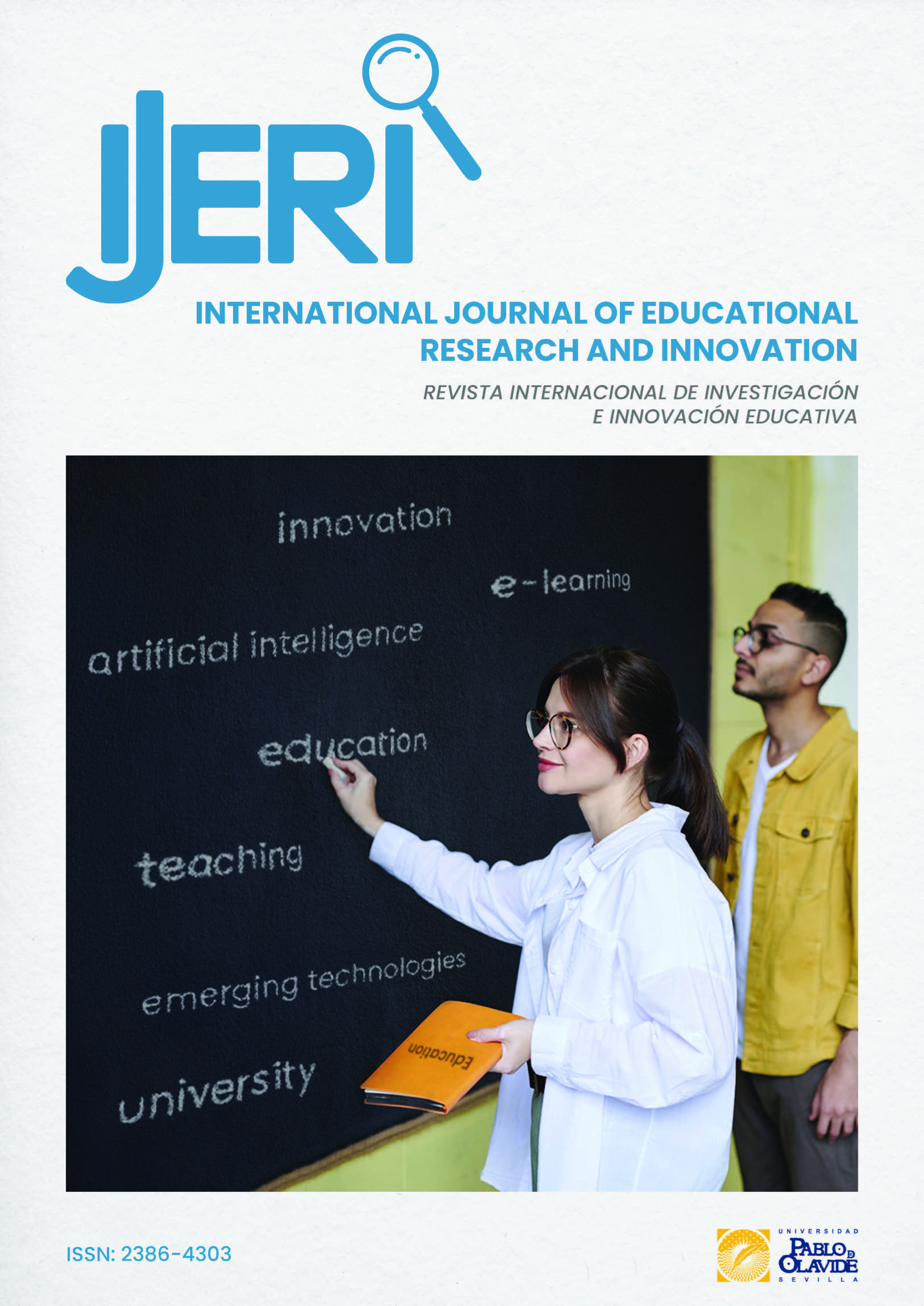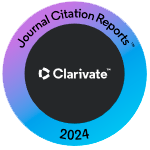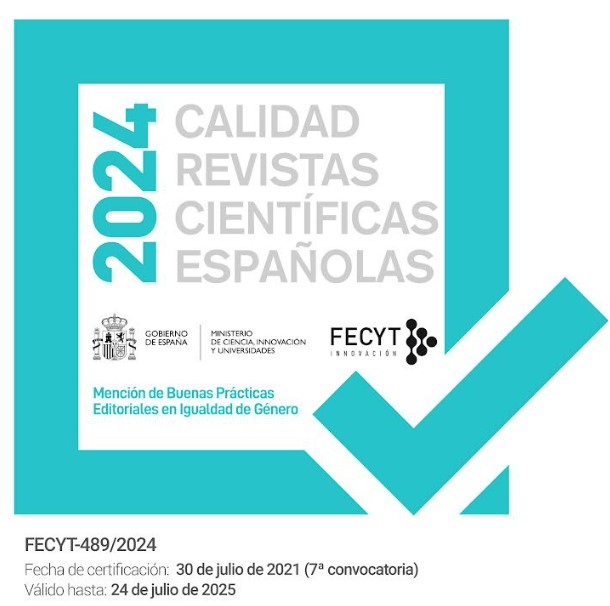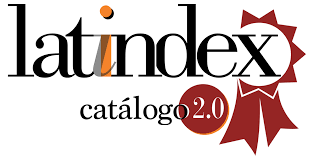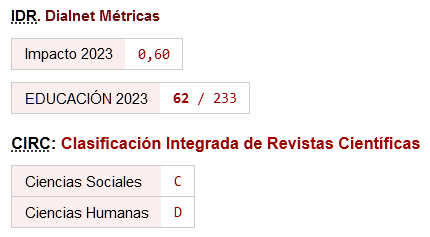The Metaverse in STEM Education
Interactive Assessment with Electronic Circuits and Arduino mediated by Artificial Intelligence
DOI:
https://doi.org/10.46661/ijeri.11217Keywords:
metaverse, artificial intelligence, assessment, simulation, representation, electrical circuits, Arduino, cospacesAbstract
Learning theories that are based on practice and experience are enriched by new forms of virtuality, which open up a range of pedagogical possibilities in digital environments mediated by artificial intelligence. These theories highlight the importance of an effective understanding of phenomena through learning evidence, where assessment plays an essential role. In this context, the representation and simulation of processes become highly valuable pedagogical resources, integrated as key elements in classroom exercises. This article describes the development and application of a set of practices focused on electronic circuits using the CoSpaces metaverse educational platform. The proposal is presented as an alternative for practical assessment that explores the potential of virtual environments to promote experiential learning and the acquisition of electronics skills, allowing students to interact with simulated circuits in an immersive way. Finally, various theoretical and practical implications derived from this work are offered.
Downloads
References
Aparicio Gómez, O. Y., Ostos Ortiz, O. L., & Mesa Angulo, J. G. (2022). La convergencia de aprendizajes en el metaverso. Revista Interamericana de Investigación Educación y Pedagogía RIIEP, 15(2), 385–398. https://doi.org/10.15332/25005421.7879
Aparicio, W. O. (2023). La inteligencia artificial y su incidencia en la educación: Transformando el aprendizaje para el siglo XXI. Revista internacional de pedagogía e innovación educativa, 3(2), 217-230. https://doi.org/10.51660/ripie.v3i2.133
Barry, D. M., Ogawa, N., Dharmawansa, A., Kanematsu, H., Fukumura, Y., Shirai, T., Yajima, K., & Kobayashi, T. (2015). Evaluation for Students’ Learning Manner Using Eye Blinking System in Metaverse. Knowledge-Based and Intelligent Information & Engineering Systems 19th Annual Conference, KES-2015, Singapore, September 2015 Proceedings, 60, 1195-1204. https://doi.org/10.1016/j.procs.2015.08.181
Bartels, N., & Hahne, K. (2023). Teaching Building Information Modeling in the Metaverse—An Approach Based on Quantitative and Qualitative Evaluation of the Students Perspective. Buildings, 13(9). https://doi.org/10.3390/buildings13092198
Bautista-Vallejo, J. M., & Hernández-Carrera, R. M. (2020). Aprendizaje basado en el modelo STEM y la clave de la metacognición. Innoeduca International Journal of Technology and Educational Innovation, 6(1), 14–25. https://doi.org/10.24310/innoeduca.2020.v6i1.6719
Beck D., Morgado, L., & O’Shea, P. (2024). Educational Practices and Strategies With Immersive Learning Environments: Mapping of Reviews for Using the Metaverse. IEEE Transactions on Learning Technologies, 17, 319-341. https://doi.org/10.1109/TLT.2023.3243946
Birkeland, H., Khalil, M., & Wasson, B. (2023). Understanding Collaboration in Virtual Labs: A Learning Analytics Framework Development (pp. 192-203). https://doi.org/10.1007/978-3-031-26876-2_18
Cui, S. (2023). Analysis and Quality Improvement Research of MOOC. Proceedings of the 6th International Conference on Digital Technology in Education, 193-199. https://doi.org/10.1145/3568739.3568772
Dewey, J. (2004). Experiencia y Educación. Biblioteca Nueva.
Dúo Terrón, P., Moreno Guerrero, A. J., López Belmonte, J., & Marín Marín, J. A. (2023). Inteligencia Artificial y Machine Learning como recurso educativo desde la perspectiva de docentes en distintas etapas educativas no universitarias. Revista Interuniversitaria de Investigación En Tecnología Educativa, 58–78. https://doi.org/10.6018/riite.579611
Duran, J. (2020). What is a Simulation Model? Minds And Machines, 30(3), 301-323. https://doi.org/10.1007/s11023-020-09520-z
Dutta, P. K., Bose, M., Sinha, A., Bhardwaj, R., Ray, S., Roy, S., & Prakash, K. B. (2022). Challenges in metaverse in problem-based learning as a game-changing virtual-physical environment for personalized content development. 6th Smart Cities Symposium (SCS 2022), 417–421. https://doi.org/10.1049/icp.2023.0641
Fadhel, M. A., Duhaim, A. M., Albahri, A. S., Al-Qaysi, Z. T., Aktham, M. A., Chyad, M. A., Abd-Alaziz, W., Albahri, O. S., Alamoodi, A. H., Alzubaidi, L., Gupta, A., & Gu, Y. (2024). Navigating the metaverse: Unraveling the impact of artificial intelligence—A comprehensive review and gap analysis. Artificial Intelligence Review, 57(10), 264. https://doi.org/10.1007/s10462-024-10881-5
Forero-Corba, W., & Bennasar, F. N. (2024). Técnicas y aplicaciones del Machine Learning e Inteligencia Artificial en educación: una revisión sistemática. RIED-Revista Iberoamericana De Educación a Distancia, 27(1), 1-34. https://doi.org/10.5944/ried.27.1.37491
García-Peñalvo, F. J., Llorens-Largo, F., & Vidal, J. (2024). La nueva realidad de la educación ante los avances de la inteligencia artificial generativa. RIED-Revista Iberoamericana de Educación a Distancia, 27(1), 9-39. https://doi.org/10.5944/ried.27.1.37716
García-Tudela, P. A., & Marín-Marín, J.-A. (2023). Use of Arduino in primary education: A systematic review. Education Sciences, 13(2), 134. https://doi.org/10.3390/educsci13020134
González-González, R. A., & Silveira-Bonilla, M. H. (2022). Educación e Inteligencia Artificial: Nodos temáticos de inmersión. Edutec, Revista Electrónica De Tecnología Educativa, (82), 59–77. https://doi.org/10.21556/edutec.2022.82.2633
Gülen, S., Dönmez, I., & Idil, S. (2022). STEM Education in Metaverse Environment: Challenges and Opportunities. Journal of STEAM Education, 5(2), 100-103. https://doi.org/10.55290/steam.1139543
Jaakkola, T., & Veermans, K. (2020). Learning electric circuit principles in a simulation environment with a single representation versus “concreteness fading” through multiple representations. Computers & Education, 148, 103811. https://doi.org/10.1016/j.compedu.2020.103811
Jain, M., & Soni, S. (2024). Virtual Reality in Electronics and Communication Engineering Education. 2024 IEEE International Conference on Information Technology, Electronics and Intelligent Communication Systems (ICITEICS), 1-5. http://dx.doi.org/10.1109/ICITEICS61368.2024.10624857
Jonassen, D. H. (2009). Learning to solve problems: an instructional design guide. Gifted and Talented International, 24(2), 153-154. http://dx.doi.org/10.1080/15332276.2009.11673538
Jonassen, D., & Hung, W. (2008). All Problems are Not Equal: Implications for Problem-Based Learning. Interdisciplinary Journal of Problem-based Learning, 2. https://doi.org/10.7771/1541-5015.1080
Kaya, D., Kutluca, T., & Dağhan, G. (2023). Transforming Education with Augmented Reality, Metaverse and Virtual Reality Technologies in the 21st Century. Hacettepe University Journal of Education, 34, 470-497. https://doi.org/10.16986/HUJE.2023.503
Kelley, T. R., & Knowles, J. G. (2016). A Conceptual Framework for Integrated STEM Education. International Journal of STEM Education, 3(11), 1-11.https://doi.org/10.1186/s40594-016-0046-z
Kolb, D.A. (1984). Experiencial Learning. Prentice Hall.
Lepez, C. O. (2022). Metaverse and education: a panoramic review. Metaverse Basic and Applied Research, 1, 2. https://doi.org/10.56294/mr20222
Lévy, P., & Zapata Ros, M. (2023). Visiones de espacios de trabajo tridimensionales o virtuales, metaversos, y educación. Realidad virtual y aprendizaje: Presentación del número especial y conclusiones. RED, 23(73). https://doi.org/10.6018/red.554591
Liu, F., Zhang, Y., Zhao, L., Dai, Q., Liu, X., & Shi, X. (2022). A Metaverse-based Student’s Spatiotemporal Digital Profile for Representing Learning Situation (p. 8). https://doi.org/10.23919/iLRN55037.2022.9815985
Liu, Z. & Lu, R. (2023). A Study on the Application of Metaverse in Vocational Education. 2023 13th International Conference on Information Technology in Medicine and Education (ITME), 385-392. https://doi.org/10.1109/ITME60234.2023.00083
López-Belmonte, J., Marín-Marín, J.A., Soler-Costa, R., & Moreno-Guerrero, A.J. (2020). Arduino Advances in Web of Science. A Scientific Mapping of Literary Production. IEEE Access, 8,128674-128682. https://doi.org/10.1109/ACCESS.2020.3008572
López-Belmonte, J., Pozo-Sánchez, S., Carmona-Serrano, N., & Moreno-Guerrero, A.J. (2022). Flipped Learning and E-Learning as Training Models Focused on the Metaverse. Emerging Science Journal, 6, 188-198. https://doi.org/10.28991/ESJ-2022-SIED-013
López-Belmonte, J., Pozo-Sánchez, S., Lampropoulos, G., & Moreno-Guerrero, A.J. (2022). Design and validation of a questionnaire for the evaluation of educational experiences in the metaverse in Spanish students (METAEDU). Heliyon, 8(11), 1-13. https://doi.org/10.1016/j.heliyon.2022.e11364
López-Belmonte, J., Pozo-Sánchez, S., Moreno-Guerrero, A.-J., & Lampropoulos, G. (2023). Metaverso en Educación: una revisión sistemática. Revista de Educación a Distancia (RED), 23(73), 1-25. http://dx.doi.org/10.6018/red.511421
López-Belmonte, J., Pozo-Sánchez, S., Moreno-Guerrero, A.-J., & Marín-Marín, J.-A. (2023). We’ve reached the GOAL. Teaching Methodology for Transforming Learning in the METAVERSE. A teaching innovation project. Metaverse Basic and Applied Research, 2, 30. https://doi.org/10.56294/mr202330
Marín-Marín, J.-A., García-Tudela, P. A., & Duo-Terrón, P. (2024). Computational thinking and programming with Arduino in education: A systematic review for secondary education. Heliyon, 10(8), e29177. https://doi.org/10.1016/j.heliyon.2024.e29177
Marín-Marín, J.-A., López-Belmonte, J., Pozo-Sánchez, S., & Moreno-Guerrero, A.-J. (2023). Attitudes towards the development of good practices with augmented reality in secondary education teachers in Spain. Technology Knowledge and Learning, 28(4), 1443–1459. https://doi.org/10.1007/s10758-023-09671-9
Marín-Marín, J.-A., Moreno-Guerrero, A.-J., Dúo-Terrón, P., & López-Belmonte, J. (2021). STEAM in education: a bibliometric analysis of performance and co-words in Web of Science. International Journal of STEM Education, 8(1). https://doi.org/10.1186/s40594-021-00296-x
Marín-Marín, J.-A., Soler-Costa, R., Moreno-Guerrero, A.-J., & López-Belmonte, J. (2020). Makey Makey as an Interactive Robotic Tool for High School Students’ Learning in Multicultural Contexts. Education Sciences, 10, 1-14. https://doi.org/10.3390/educsci10090239
Marrero Galván, J. J., & Hernández Padrón, M. (2022). La trascendencia de la realidad virtual en la educación STEM: una revisión sistemática desde el punto de vista de la experimentación en el aula. Bordón Revista de Pedagogía, 74(4), 45–63. https://doi.org/10.13042/bordon.2022.94179
Moral-Sánchez, S. N., Ruiz Rey, F. J.., & Cebrián-de-la-Serna, M. (2023). Analysis of artificial intelligence chatbots and satisfaction for learning in mathematics education. IJERI: International Journal of Educational Research and Innovation, (20), 1–14. https://doi.org/10.46661/ijeri.8196
Nagao, K. (2023). Virtual Reality Campuses as New Educational Metaverses. IEICE Transactions on Information and Systems, E106.D, 93-100. https://doi.org/10.1587/transinf.2022ETI0001
Ng, P. H. F., Chen, P. Q., Sin, Z. P. T., Jia, Y., Li, R. C., Baciu, G., Cao, J., & Li, Q. (2023). From classroom to metaverse: A study on gamified constructivist teaching in higher education. In Lecture Notes in Computer Science (pp. 92–106). Springer Nature Singapore. https://doi.org/10.1007/978-981-99-8385-8_8
Nicolescu, B. (1996). La Transdisciplinariedad Manifiesto. Ediciones Du Rocher. https://www.ceuarkos.edu.mx/wp-content/uploads/2019/10/manifiesto.pdf
Ortega Rodríguez, P. J. (2022). De la Realidad Extendida al Metaverso: una reflexión crítica sobre las aportaciones a la educación. Teoría de La Educación Revista Interuniversitaria, 34(2), 189–208. https://doi.org/10.14201/teri.27864
Piaget, J. (1991). Seis estudios de Psicología. Labor.
Reeves, S., & Crippen, K. (2021). Virtual Laboratories in Undergraduate Science and Engineering Courses: A Systematic Review, 2009-2019. Journal of Science Education and Technology, 30(1), 16-30. https://doi.org/10.1007/s10956-020-09866-0
Rudolphi-Solero, T., Lorenzo-Álvarez, R., Domínguez-Pinos, D., Ruiz-Gómez, M. J., & Sendra-Portero, F. (2024). An Interuniversity Competition for Medical Students to Learn Radiology in the Second Life Metaverse. Focus on Interventional Radiology, 21(5), 812-821. https://doi.org/10.1016/j.jacr.2023.09.012
Said, G. R. (2023). Metaverse-Based Learning Opportunities and Challenges: A Phenomenological Metaverse Human–Computer Interaction Study. Electronics, 12(6). https://doi.org/10.3390/electronics12061379
Sanabria-Navarro, J., Silveira-Pérez, Y., Pérez-Bravo, D., & de-Jesús-Cortina-Núñez, M. (2023). Incidences of artificial intelligence in contemporary education. Comunicar, 77, 97-107. https://doi.org/10.3916/C77-2023-08
Sin, Z. P. T., Jia, Y., Wu, A. C. H., Zhao, I. D., Li, R. C., Ng, P. H. F., Huang, X., Baciu, G., Cao, J., & Li, Q. (2023). Toward an Edu-metaverse of knowledge: Immersive exploration of university courses. IEEE Transactions on Learning Technologies, 16(6), 1096–1110. https://doi.org/10.1109/tlt.2023.3290814
Singh-Pillay, A. (2024). Exploring Science and Technology Teachers’ Experiences with Integrating Simulation-Based Learning. Education Sciences, 14(8). https://doi.org/10.3390/educsci14080803
Siyaev, A., & Jo, G.-S. (2021). Towards Aircraft Maintenance Metaverse Using Speech Interactions with Virtual Objects in Mixed Reality. Sensors, 21(6). https://doi.org/10.3390/s21062066
Solanes, J. E., Montava-Jordà, S., Golf-Laville, E., Colomer-Romero, V., Gracia, L., & Muñoz, A. (2023). Enhancing STEM education through interactive metaverses: A case study and methodological framework. Applied Sciences (Basel, Switzerland), 13(19), 10785. https://doi.org/10.3390/app131910785
Solanes, J.E., Montava-Jordà, S., Golf-Laville, E., Colomer-Romero, V., Gracia, L., & Muñoz, A. (2023). Enhancing STEM Education through Interactive Metaverses: A Case Study and Methodological Framework. Applied Sciences, 13(19), 1-17. https://doi.org/10.3390/app131910785
Tarng, W., Huang, J., Shu, J., Lin, Y., Chang, T., Jwo, H., & Tang, C. (2024). Development of a virtual teaching module for advanced semiconductor fabrication and its learning effectiveness analysis. Computer Applications in Engineering Education. https://doi.org/10.1002/cae.22802
Tene, T., Marcatoma Tixi, J. A., Palacios Robalino, M., Mendoza Salazar, M. J., Vacacela Gómez, C., & Bellucci, S. (2024). Integrating immersive technologies with STEM education: A systematic review. Frontiers in Education, 9. https://doi.org/10.3389/feduc.2024.1410163
Tigse-Carreño, C. (2019). El Constructivismo, según bases teóricas de César Coll. Revista Andina de Educación, 2(1), 25–28. https://doi.org/10.32719/26312816.2019.2.1.4
Tsappi, E., Deliyannis, I., & Papageorgiou, G. N. (2024). Developing a Performance Evaluation Framework Structural Model for Educational Metaverse. Technologies, 12(4). https://doi.org/10.3390/technologies12040053
Tsupros, N., Kohler, R., & Hallinen, J. (2009). STEM Education: A project to identify the missing components [Summary report]. The Intermediate Unit 1: Center for STEM Education and Leonard Gelfand Center for Service Learning and Outreach at Carnegie Mellon University, Pennsylvania. https://www.cmu.edu/gelfand/archive/archived-documents/stem-survey-report-cmu-iu1.pdf
Wang M., Tong J., & Lu, H. (2024). Digital Twin Technology of Metaverse Based on Game Engine in the Campus Application Scenarios. Academic Journal of Engineering and Technology Science, 7(2), 157-163. https://doi.org/10.25236/AJETS.2024.070223.
Wood, R., & Malik, M. (2022). A landscape review of the literature focusing upon the use of technology to support problem, case and project based learning in higher education STEM disciplines. Towards a New Future in Engineering Education, New Scenarios That European Alliances of Tech Universities Open Up, 872–889. https://doi.org/10.5821/conference-9788412322262.1164
Wu, T., & Hao, F. (2023). Edu-Metaverse: concept, architecture, and applications. Interactive Learning Environments, 32(8), 4352–4379. https://doi.org/10.1080/10494820.2023.2198567
Xu, W., & Ouyang, F. (2022). The application of AI technologies in STEM education: A systematic review from 2011 to 2021. International Journal of STEM Education, 9(1), 59. https://doi.org/10.1186/s40594-022-00377-5
Zhang, K. (2023). Metaverse Applications for Construction of Educational Digital Resources. Metaverse – METAVERSE 2023: 19th International Conference, Held as Part of the Services Conference Federation, SCF 2023, Honolulu, HI, USA, September 23–26, 2023, Proceedings, 108-119. https://doi.org/10.1007/978-3-031-44754-9_9
Zhang, Y., Feijoo-García, M. A., Gu, Y., Popescu, V., Benes, B., & Magana, A. J. (2024). Virtual and Augmented Reality in Science, Technology, Engineering, and Mathematics (STEM) Education: An Umbrella Review. Information, 15(9). https://doi.org/10.3390/info15090515
Zhu, D. H. (2024). Introducing immersive virtual reality in a marketing practical training course: Qualitative evaluation with undergraduates. The International Journal of Management Education, 22(3), 101058. https://doi.org/10.1016/j.ijme.2024.101058
Zi, L., & Cong, X. (2024). Metaverse Solutions for Educational Evaluation. Electronics, 13(6). https://doi.org/10.3390/electronics13061017
Published
How to Cite
Issue
Section
License
Copyright (c) 2025 Óscar Bedoya-Cano, José-Antonio Marín-Marín, José-Jesús Sánchez-Amate, Jesús López-Belmonte

This work is licensed under a Creative Commons Attribution-NonCommercial-NoDerivatives 4.0 International License.

